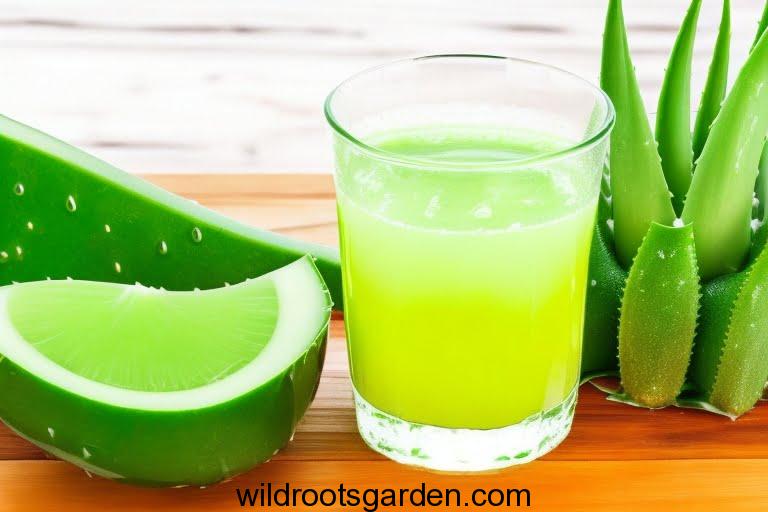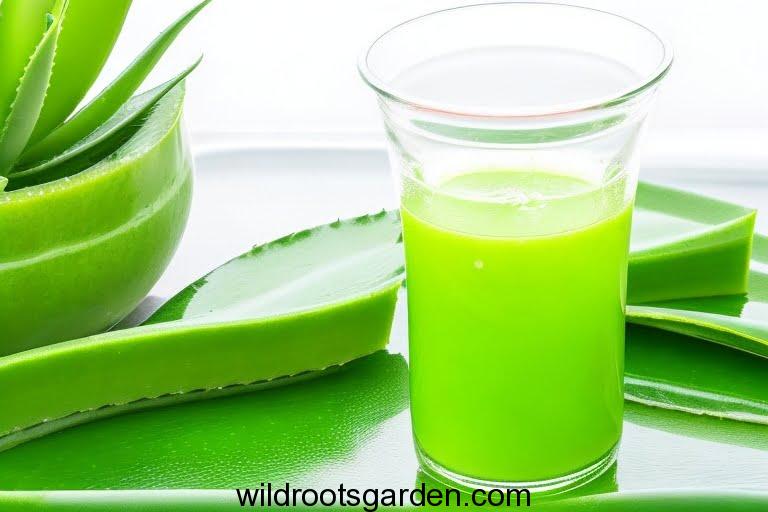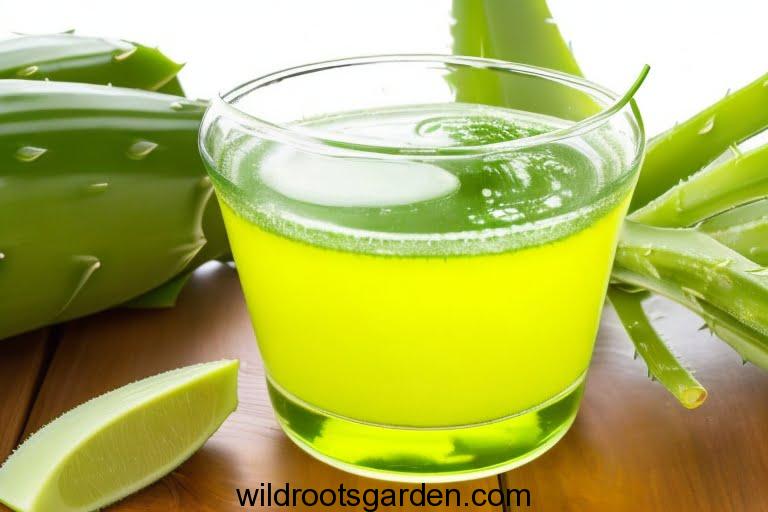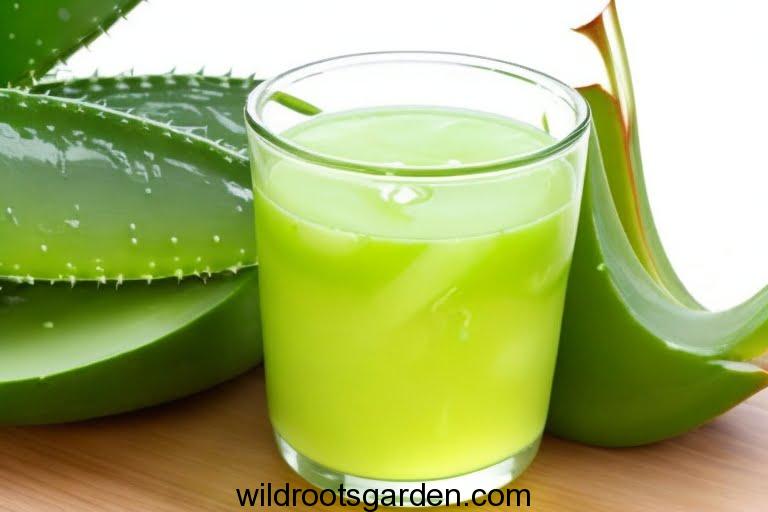Aloe Vera Juice for Psoriasis. Itchy, scaly areas that are chronically present in psoriasis can be both uncomfortable and humiliating. Psoriasis does not have a known cause or therapy, although there are numerous ways to control the condition’s symptoms and offer comfort. Aloe vera juice for psoriasis is a common natural treatment for this condition. In this post, we’ll look at the potential advantages of utilizing aloe vera juice to treat psoriasis symptoms and how it can improve skin health in general.
JUMP TO TOPIC
Table of Contents

What is Psoriasis?
The life cycle of skin cells is accelerated by the prevalent skin condition psoriasis. Skin cells typically develop deep within the skin and gradually surface over time. This process is sped up in psoriasis, leading to a quick surface buildup of cells. As a result, there may be uncomfortable and itchy thick, red spots that are covered with silvery scales.
Understanding the Causes of Psoriasis
Although its specific cause is still uncertain, psoriasis is thought to be an autoimmune disease. Healthy skin cells are mistakenly attacked by the immune system, resulting in fast cell growth and accumulation. Genetics, environmental triggers, immune system malfunction, and other elements may all have a role in the onset and progression of psoriasis.
Common Types of Psoriasis
Many kinds of psoriasis can appear, and each type has unique traits. The most typical forms of psoriasis consist of:

Plaque Psoriasis
About 80% of instances of psoriasis are of the plaque variety, which is the most common type. It appears as elevated, crimson areas covered in silver-white scales.
Guttate Psoriasis
Guttate psoriasis frequently develops following an infection, like strep throat. Little, red patches on the skin, typically on the scalp, limbs, and trunk, are its defining feature.
Inverse Psoriasis
Areas where the skin folds, such as the armpits, groin, and under the breasts, are affected by inverse psoriasis. It appears as smooth, crimson, scale-free regions.
Pustular Psoriasis
Rarely occurring pustular psoriasis is characterized by red skin around pus-filled blisters. It may result in flu-like symptoms and might be localized or widespread.
Erythrodermic Psoriasis
A severe and uncommon type of psoriasis that involves the entire body is erythrodermic psoriasis. It can interfere with the body’s ability to regulate temperature and results in extreme redness and scale shedding.

Benefits of Aloe Vera for Psoriasis
Aloe vera’s natural anti-inflammatory properties can help reduce the redness and itching caused by psoriasis flare-ups. Using aloe vera juice or gel topically on the affected areas may provide relief.
Moisturizes Dry Skin
Dry skin is a typical psoriasis symptom that can make itchy, flaky skin even worse. Natural moisturizer aloe vera juice hydrates the skin and guards from too dryness.
Promotes Healing
Compounds that aid in wound healing are found in the aloe vera plant’s gel. Small wounds are frequently caused by the scratching and flaking of psoriasis lesions. Aloe vera juice applied topically could hasten the healing process.
Supports Skin Health
Aloe vera is abundant in vitamins, minerals, and antioxidants that are good for the general health of the skin. These substances can hydrate the skin, increase its suppleness, and strengthen its defensive mechanisms.
Minimizes Scarring
Lesions from psoriasis can create scars, especially if they are picked or scraped. By encouraging the regeneration of healthy skin cells, aloe vera juice may help reduce scarring.

Using Aloe Vera Juice for Psoriasis
Topical Application
To use aloe vera juice topically, follow these steps:
- Cleanse the affected area with mild soap and water.
- Pat the skin dry with a clean towel.
- Apply a small amount of aloe vera juice or gel directly to the psoriasis lesions.
- Gently massage the juice into the skin until fully absorbed.
- Repeat this process twice daily for optimal results.
Oral Consumption
Aloe vera juice can also be taken orally and may help those with psoriasis. Before incorporating any new vitamins or treatments into your regimen, you must, however, speak with a healthcare provider.
Precautions and Considerations
While aloe vera juice is generally considered safe for topical use and oral consumption, it is important to keep the following precautions in mind:
- Patch Test: Before applying aloe vera juice to a large area, perform a patch test on a small, inconspicuous area of the skin to check for any adverse reactions.
- Allergies: Some individuals may be allergic to aloe vera. Discontinue use if any signs of an allergic reaction, such as rash, itching, or swelling, occur.
- Quality and Purity: Ensure that the aloe vera juice or gel you use is of high quality and free from additives or contaminants.
- Interactions: Aloe vera juice may interact with certain medications. If you are taking any prescription medications, consult with your healthcare provider before using aloe vera.
FAQs about Aloe Vera Juice for Psoriasis
Is aloe vera juice effective for all types of psoriasis?
Aloe vera juice may provide relief for various types of psoriasis, including plaque psoriasis, guttate psoriasis, and inverse psoriasis. However, the extent of its effectiveness may vary from person to person.
Can aloe vera juice cure psoriasis?
Aloe vera juice cannot cure psoriasis, but it can help alleviate symptoms and improve the overall condition of the skin.
How long does it take to see results from using aloe vera juice for psoriasis?
The time it takes to see results from using aloe vera juice for psoriasis can vary depending on factors such as the severity of the condition and individual response. Consistent and long-term use is often necessary to experience noticeable improvements.
Are there any side effects of using aloe vera juice for psoriasis?
While aloe vera juice is generally safe, some individuals may experience mild skin irritation or allergic reactions. It is essential to perform a patch test and discontinue use if any adverse effects occur.
Can I use aloe vera juice alongside prescribed psoriasis medications?
It is crucial to consult with your healthcare provider before using aloe vera juice alongside prescribed psoriasis medications to ensure there are no potential interactions or contraindications.
Final Thoughts
For those looking for a natural alternative to treat the signs and symptoms of psoriasis, aloe vera juice may be helpful. It is a promising treatment for controlling this chronic skin problem due to its anti-inflammatory, healing, and moisturizing qualities. Aloe vera juice is not a psoriasis treatment, so it’s vital to keep in mind that individual outcomes may vary. Consult a medical practitioner for tailored guidance if you’re thinking about including aloe vera juice in your psoriasis management regimen.


